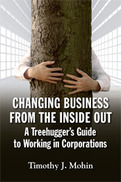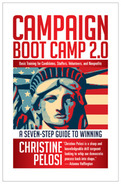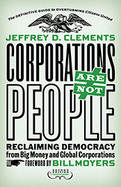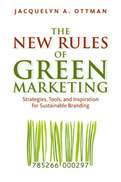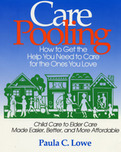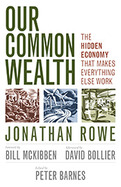-
An authoritative and candid insider's guide to the essential knowledge, skills, and abilities needed to establish a successful CSR career
-
Filled with practical advice on programs, processes, and most importantly, the personal and professional skills needed to thrive
-
Features fascinating stories and examples drawn from the author's more than two decades in corporate social responsibility
The BP oil spill, the 2008 global financial collapse, and revelations of scandalous work conditions at Chinese electronics supplier Foxconn show why so many are suspicious of promises of corporate responsibility. But slowly and fitfully, corporations are changing. It's not just because of the high cost of making amends and a fear of negative publicity-consumers are demanding better corporate behavior. But corporations can't act in responsible ways if no "treehuggers" are working inside the system to lead the effort.
For more than two decades, Timothy J. Mohin has worked to improve working conditions, clean up factories, and battle climate changeall-while being employed by some of the biggest companies in the world. In Changing Business from the Inside Out he's written the first practical, authoritative insider's guide to creating a career in corporate responsibility. Mohin describes how to get started and what the day-to-day experience of being "the designated driver at the corporate cocktail party" is really like. He recounts colorful case studies from his own career, provides advice on how CSR workers can have greater iimpact, and even looks into how employees in other corporate functions can make a difference. He details the programs and processes needed to support a comprehensive CSR effort, but perhaps most importantly, he identifies the personal and professional skills needed to navigate corporate politics and get buy-in from sometimes skeptical colleagues.
With more than 80 percent of the Fortune 500 now publishing "sustainability reports," a new career path has been forged in corporate responsibility. From strategy to data mining to supply chains and communication, this book is the "operator's manual" for this new career path.
The BP oil spill, the 2008 global financial collapse, and revelations of scandalous working conditions at Chinese electronics supplier Foxconn show why so many are suspicious of promises of corporate responsibility. But slowly and fitfully, corporations are changing. It’s not just because of the high cost of making amends and a fear of negative publicity. Consumers are demanding better corporate behavior, and an increasing number of executives are eager to make their organizations more of a force for good. But corporations can’t act in responsible ways if no “treehuggers” are working inside the system to lead the effort. For more than two decades, Timothy J. Mohin has worked to improve working conditions, clean up factories, and battle climate change—all while being employed by some of the biggest companies in the world. In Changing Business from the Inside Out he’s written the first practical, authoritative insider’s guide to creating a career in corporate responsibility. Mohin describes how to get started and what the day-to-day experience of being “the designated driver at the corporate cocktail party” is really like. He recounts colorful case studies from his own career, provides advice on how CSR workers can have greater impact, and even looks into how employees in other corporate functions can make a difference. He details the programs and processes needed to support a comprehensive CSR effort, but perhaps most importantly, he identifies the personal and professional skills needed to navigate corporate politics and get buy-in from sometimes skeptical colleagues. With more than 80 percent of the Fortune 500 now publishing “sustainability reports,” a new career path has been forged in corporate responsibility. From strategy to data mining to supply chains and communication, this book is the “operator’s manual” for this new career path.-
An authoritative and candid insider's guide to the essential knowledge, skills, and abilities needed to establish a successful CSR career
-
Filled with practical advice on programs, processes, and most importantly, the personal and professional skills needed to thrive
-
Features fascinating stories and examples drawn from the author's more than two decades in corporate social responsibility
- Click here for the press release
The BP oil spill, the 2008 global financial collapse, and revelations of scandalous work conditions at Chinese electronics supplier Foxconn show why so many are suspicious of promises of corporate responsibility. But slowly and fitfully, corporations are changing. It's not just because of the high cost of making amends and a fear of negative publicityconsumers are demanding better corporate behavior. But corporations can't act in responsible ways if no "treehuggers" are working inside the system to lead the effort.
For more than two decades, Timothy J. Mohin has worked to improve working conditions, clean up factories, and battle climate changeallwhile being employed by some of the biggest companies in the world. In Changing Business from the Inside Out he's written the first practical, authoritative insider's guide to creating a career in corporate responsibility. Mohin describes how to get started and what the day-to-day experience of being "the designated driver at the corporate cocktail party" is really like. He recounts colorful case studies from his own career, provides advice on how CSR workers can have greater iimpact, and even looks into how employees in other corporate functions can make a difference. He details the programs and processes needed to support a comprehensive CSR effort, but perhaps most importantly, he identifies the personal and professional skills needed to navigate corporate politics and get buy-in from sometimes skeptical colleagues.
With more than 80 percent of the Fortune 500 now publishing "sustainability reports," a new career path has been forged in corporate responsibility. From strategy to data mining to supply chains and communication, this book is the "operator's manual" for this new career path.
Campaign Boot Camp 2.0 is basic training for future leaders who hear a call to service—a voice of conscience that springs from their vision, ideas, and values—and want to translate that call into positive change. Pelosi outlines the seven essential steps to winning: identify your call to service, define your message, know your community, build your leadership teams, raise the money, connect with people, and mobilize to win. Each chapter concludes with a “Get Real” exercise so readers can personalize and integrate these ideas into individual efforts.
In this edition, Pelosi updates the book's “Call to Service” profiles of political leaders and their calls to service; details the expanding role of social media, the Internet, and technology as message multipliers; explores challenges unique to women candidates; and expands on the power of volunteers.
- Detailed, practical advice on how to win any kind of campaign
- Written by a veteran activist with a lifetime of experience running campaigns at every level
- Updated throughout, including new information on using social media, challenges unique to women, and the power of volunteers
My political activism began in the stroller, writes Christine Pelosi. As the daughter of Congresswoman and former House Speaker Nancy Pelosi, Christine is almost literally a born campaigner. She knows politics and policy inside out: shes served as an attorney in the Clinton-Gore administration, on Capitol Hill as a Congressional chief of staff, and as a San Francisco prosecutor. She has conducted boot camps in over thirty states and in three countries, working with dozens of successful candidates for office from city council to US congress. In Campaign Boot Camp 2.0, Pelosi presents leadership lessons from the campaign trail from a diverse array of over forty public figures, lending advice for anyone who wants to run for office, advocate for a cause, or win a public policy issue.
Campaign Boot Camp 2.0 is basic training for future leaders who hear a call to servicea voice of conscience that springs from vision, ideas, and valuesand want to translate that call into positive change. Pelosi offers the seven essential steps to winning: identify your call to service, define your message, know your community, build your leadership teams, raise the money, connect with people, and mobilize to win. Each chapter concludes with a Get Real exercise so readers can personalize and integrate these ideas into individual efforts.
In this edition, Pelosi updates the books Call to Service examplesprofiles of current political leaders and what motivated them to enter public service; details the expanding role of social media, the Internet, and technology as message multipliers; explores challenges unique to women candidates; and expands on the power of volunteers.
- A plain-English guide to the disastrous practical consequences of the bizarre legal doctrine of corporate personhood enshrined most recently in the Supreme Courts Citizens United decision
- Features a constitutional amendment designed to overturn Citizens United and restore the government to the people
- Includes a tool kit to help citizens mount a grassroots campaign to pass the Peoples Rights amendment
- Click here for the press release
The January 2010 Supreme Court Citizens United v. Federal Election Commission decisionmarked a culminating victory for the legal doctrine of corporate personhood. Corporations, as legal persons, are now entitled to exercise their alleged free-speech rights in the form of campaign spending, effectively enabling corporate domination of the electoral process.
Jeffrey Clements uncovers the roots, expansion, and far-reaching effects of the strange and destructive idea, which flies in the face of not only all common sense but, Clements shows, most of American legal history, from 1787 to the 1970s. He details its impact on the American political landscape, economy, job market, environment, and public healthand how it permeates our daily lives, from the quality of air we breathe to the types of jobs we can get to the politicians we elect. Most importantly, he offers a solution: a constitutional amendment to reverse Citizens United and tools readers can use to mount a grassroots drive to get it passed.
Overturning Citizens United is not about a triumph of one political ideology over anotherits about restoring the democratic principles on which America was built. Republican president Theodore Roosevelt and conservative Supreme Court Chief Justice William Rehnquist both vocally opposed the idea of corporate personhood. Community by community, state by state, we can cross party and ideological lines to form a united front against unchecked corporate power in Americaand reinstate a government that is truly of, by, and for the people.
Drawing on the latest poll data and incorporating lessons learned from her clients and other leading sustainable brands -- including GE, Nike, Method, Starbucks, Timberland, HP, NatureWorks, Procter & Gamble, Stonyfield Farm, and Wal-Mart -- Ottman provides practical strategies, tools, and inspiration for building every aspect of a credible value-based green marketing strategy. She covers such topics as spurring innovation through a proactive approach to sustainability, developing products that are green throughout their life cycle, communicating credibly to avoid accusations of "greenwashing," teaming up with stakeholders to maximize outreach to consumers, taking advantage of social media, and much more.
The New Rules of Green Marketing captures the best of Ottman's two previous groundbreaking books on green marketing and places it within a 21st Century context. Focusing on a new generation of marketers who likely grew up with an appreciation for sustainability, it provides in one place essential strategies, tools, and inspiration for connecting effectively with mainstream consumers.
-
By a trailblazing expert in green marketing
-
Demonstrates how to effectively market green to mainstream consumers
-
Filled with success stories from sustainability leader including Ottman's Fortune 500 and entrepreneurial clients
- Click Here for Press Release
Green products have been around since the 1970s, but it's only in recent years that they've become ubiquitous. That's because savvy green marketers are no longer targeting "deep green" consumers with a "save the planet" pitch. Instead, they're promoting the added value their products provide: better health, superior performance, good taste, or cost-effectiveness. In this innovative book Ottman argues that emphasizing primary benefits -- the New Rules -- is critical to winning over the mainstream consumer.
Drawing on the latest poll data and incorporating lessons learned from her clients and other leading sustainable brands -- including GE, Nike, Method, Starbucks, Timberland, HP, NatureWorks, Procter & Gamble, Stonyfield Farm, and Wal-Mart -- Ottman provides practical strategies, tools, and inspiration for building every aspect of a credible value-based green marketing strategy. She covers such topics as spurring innovation through a proactive approach to sustainability, developing products that are green throughout their life cycle, communicating credibly to avoid accusations of "greenwashing," teaming up with stakeholders to maximize outreach to consumers, taking advantage of social media, and much more.
The New Rules of Green Marketing captures the best of Ottman's two previous groundbreaking books on green marketing and places it within a 21st Century context. Focusing on a new generation of marketers who likely grew up with an appreciation for sustainability, it provides in one place essential strategies, tools, and inspiration for connecting effectively with mainstream consumers.
1993
2013
A huge part of our economy is invisible, invaluable, and under siege. This book describes a growing movement to recognize and defend the commons on many fronts: community initiatives, legal actions, and visionary proposals.
A huge part of our economy is invisible, invaluable, and under siege. This is “the commons,” a term that denotes everything we share. Some parts of the commons are gifts of nature: the air and oceans, the web of species, wilderness, and watersheds. Others are the product of human creativity and endeavor: sidewalks and public spaces, the Internet, our languages, cultures, and technologies. Jonathan Rowe illuminates the scale and value of the commons, its symbiotic relationship with the rest of our economy, its importance to our personal and planetary well-being, and how it is threatened by privatization and neglect. He unifies many seemingly disparate struggles—against pollution, excessive development, corporate marketing to children, and more—with the force of this powerful idea. And he calls for new institutions that create a durable balance between the commons and the profit-seeking side of our economy.- Identifies an essential but overlooked and endangered sector of our economy
- Beautifully writtenclear, accessible, poetic
- Filled with examples of what can be done to protect, nurture, and share our common wealth
- Click here for the press release
A huge part of our economy is invisible, invaluable, and under siege. "The commons" is a term that denotes everything we share as opposed to own privately. Some parts of the commons are gifts of nature: the air and oceans, the web of species, wilderness, and watersheds. Others are the product of human creativity and endeavor: sidewalks and public squares, the Internet, our languages, cultures, technologies, and infrastructure. In graceful and down-to-earth prose, Jonathan Rowe illuminates the scale and value of the commons, its symbiotic relationship with the rest of the economy, its importance to our personal and planetary well-being, and how it is threatened by privatization and neglect.
Rowe also describes a growing movement to recognize and defend the commons on many fronts: community initiatives, legal actions, and visionary proposals such as a sky trust to charge polluters and distribute the proceeds to all of us. Simple gestures can be powerful too: Rowe relates how he set some benches in a vacant lot and watched a public gathering space take shape.
For decades, people have defended the commons and not known it. Theyve battled pollution, development, corporate marketing assaults on their kids, and many other attacks on common wealth. Whats been missing is a story that unifies all these seemingly unrelated battles with the force of a powerful idea. This is what Jonathan Rowe provides in this thought-provoking book.


